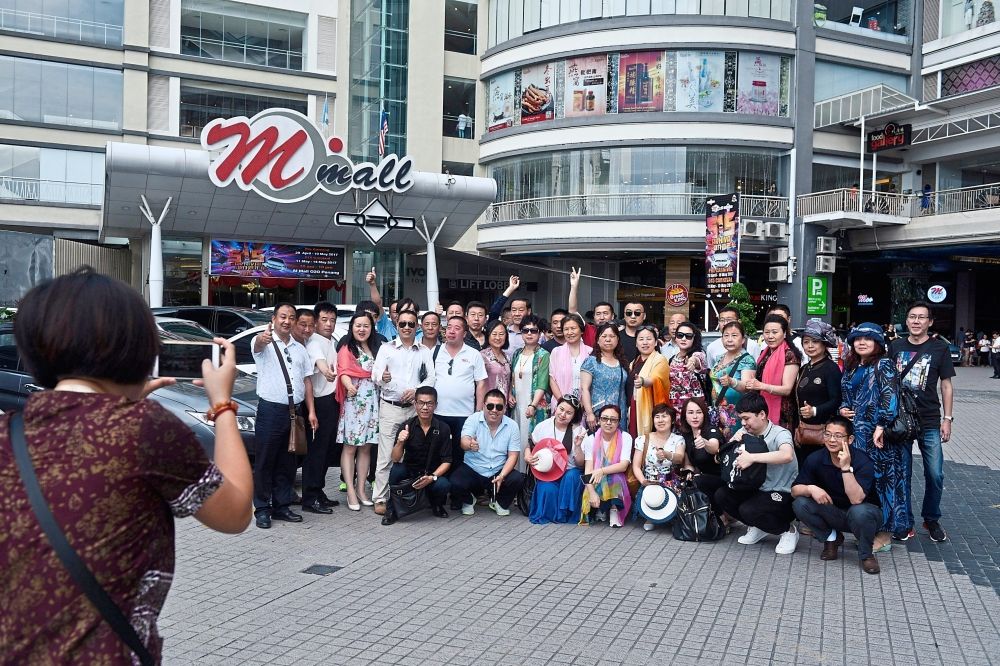Entrepreneur, philanthropist, get-rich-quick ‘hero’ wanted in M’sia and China
He lorded over a mighty empire – hotels, restaurants, agro parks, housing estates with fancy theme parks, the sprawling M Mall – and even
had his own digital currency Mcoin. But big man Tedy Teow has fallen hard. Caught in Thailand for money-laundering, the MBI boss now faces criminal action in three countries.
GEORGE TOWN: He once lorded over much of Penang as the “King of money games”. But how the mighty has fallen.
Tedy Teow, the founder of MBI – Mobility Beyond Imagination – can now start imagining himself being restricted in prison cells in three different countries, all of which want him for questioning over several money-laundering cases.
ALSO READ: Malaysian billionaire businessman held in Thailand
It’s a far cry from his glory days. Then, he ruled over an “Mpire” that had pretty much everything – housing development, malls, a chain of hotels, an ehailing service and even its own brand of smartphones.
Not bad for a kid who had started out selling pencils, exercise books and combs.
ALSO READ: Thailand to deport fugitive Tedy Teow
His MBI was also on top of the money game world.
It was during a time when there were plenty of get-rich-quick schemes in Penang which prom
It was during a time when there were plenty of get-rich-quick schemes in Penang which promised high returns – JJ Poor To Rich (JJPTR), Richway Global Venture, Mama Captain, and Change Your Life (CYL) – but MBI was the darling of them all. Teow had a large following here particularly with the hawkers, self-employed professionals and ordinary folk who wanted to make a fast buck. ALSO READ: Police apply to repatriate ex-fugitive Teow from Thai custody “He was my hero. I made a few thousand ringgit monthly from my investment in MBI then. But eventually, I lost it all after I doubled my investment, only to see the company collapsing later on,” said hawker BK Khor, 58. While many heaped praise on the big man, some also nearly lost their life savings when MBI was red-flagged by authorities in 2019. A technician at a factory in Bayan Lepas free-trade zone, who wanted to be known only as James, said he learnt about the scheme through one of his friends. “This was about four years ago. After earning a profit each month for about one year, I put in everything I had. I was lucky to break even in the end,” he said.

From glory to gloom: The M Mall, which was once bustling with activity (below), now stands practically abandoned along Jalan Datuk Keramat in Penang. — CHAN BOON KAI/The Star
Fast-forward to today, Teow is now in custody in Thailand and awaiting deportation after he was arrested in Songkhla last Friday. And both Malaysia and China want him in their hands. The Malaysian police are applying for a repatriation exercise for Teow to return to the country to assist in investigations under Section 420 for cheating. Beijing police also reportedly want him for questioning. This is after a suit filed end of last year by about 400 investors from China to recover investments worth some RM100mil. In 2019, about 100 Chinese nationals staged a peaceful protest outside the Chinese embassy in Kuala Lumpur to complain that they had been cheated by an online pyramid scheme operated by MBI. Coincidentally, it was in China that Teow got his “second shot at life” according to a YouTube video released in 2013.Titled The Story of MBI International’s Boss, the video was a biography of Teow as an enterprising schoolboy in the 1970s, bringing pencils, exercise books, combs and assorted items to sell in his school.

But now, the real bombshell has fallen. Teow is under police custody. But his story has surely not ended yet.





































 How to Invest in Bitcoin: 14 Steps (with P
How to Invest in Bitcoin: 14 Steps (with P